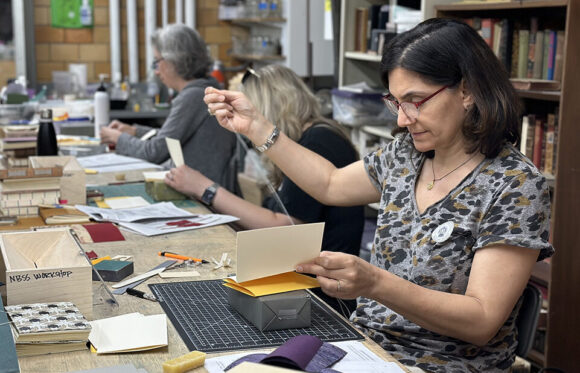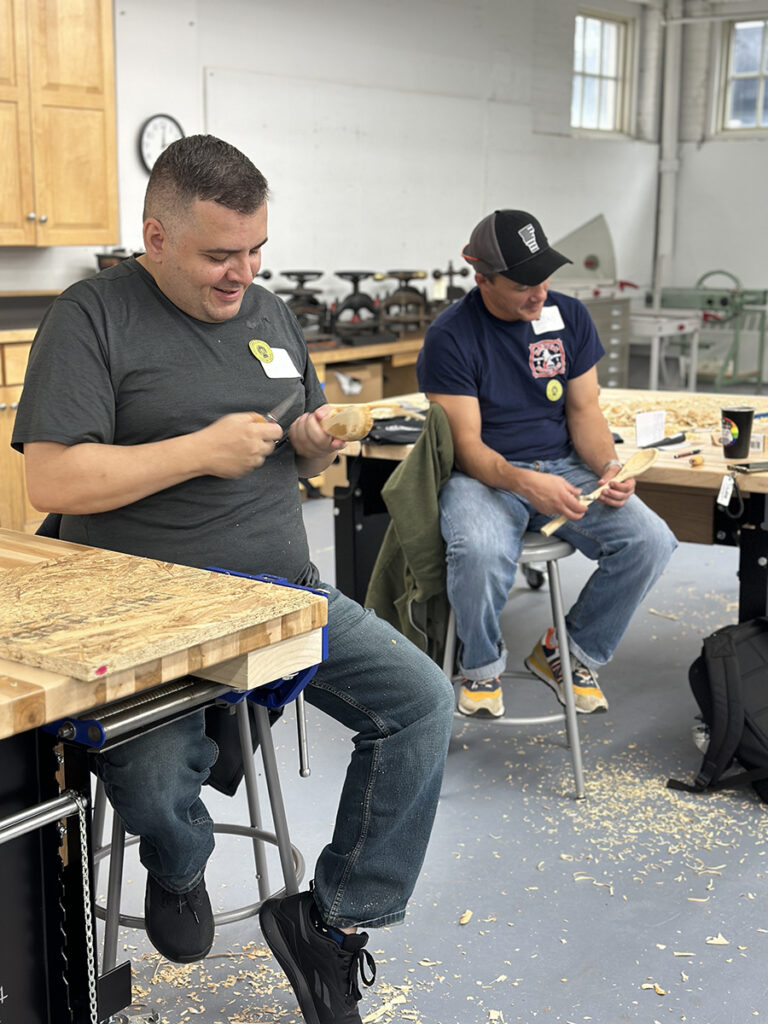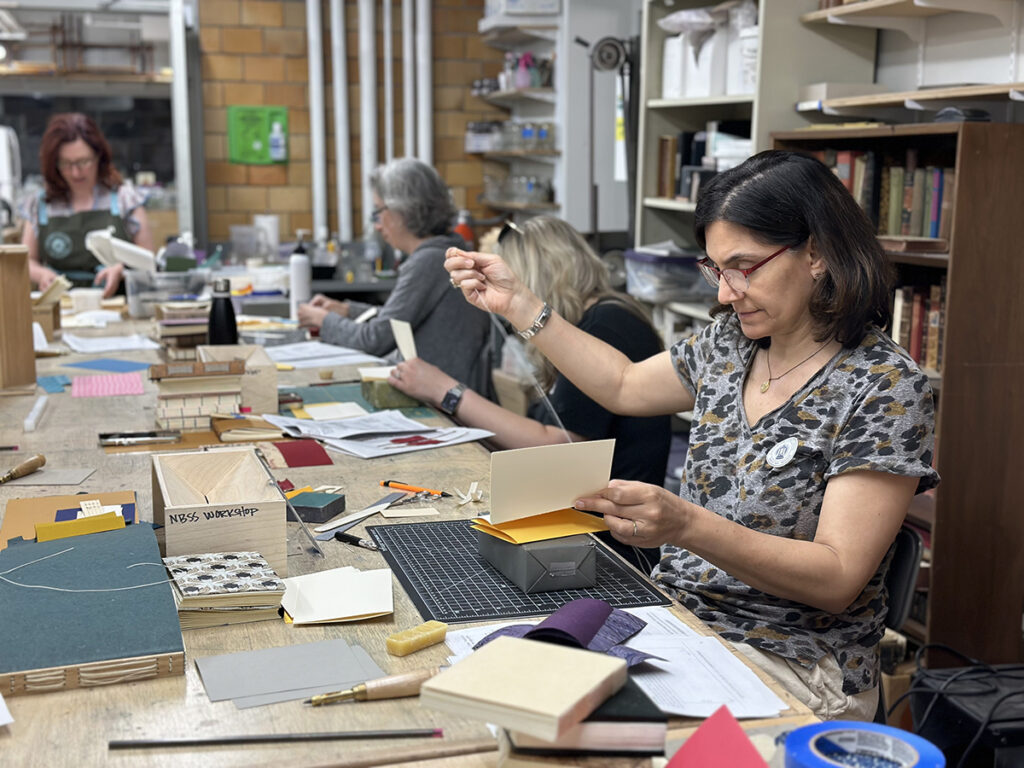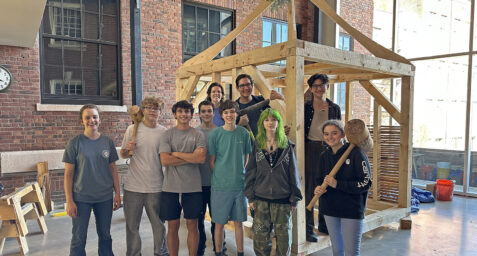Hands-On Work Is Good for the Soul

Categories
Community EducationWhat does a busy lawyer do to relax and re-center on the weekends? In the case of Boston Attorney Jeff Soilson, it’s engaging in two-day spoon carving and bookbinding classes at NBSS. As he posted on LinkedIn, “Just completed a fantastic spoon carving class at North Bennet School in Boston’s North End! Engaging in hands-on work has become my best mindfulness exercise.” He also said, “These experiences are more than just hobbies—they’re gateways to mindfulness, allowing us to focus on intricate tasks using underutilized senses. They contribute immensely to overall wellness.”

We think he’s onto something. In our increasingly hectic and fragmented world, the ability to be calm, centered, and fully aware can be a very elusive goal. Simply resolving to be mindful or attempting to meditate may not be enough to take us out of the fast lane when our minds are preoccupied with all we have to do.
There’s a reason so many of our students are mature career professionals and military veterans—they are drawn to the soul-healing qualities of working with their hands. In an article for Psychology Today, “Working with Your Hands Does Wonders for Your Brain,” Dr. Susan Haas writes: “…working productively with our hands is profoundly pleasurable… We are made to be active… Using our hands may actually be key to maintaining a healthy mood, and the lack of this type of activity may contribute to feelings of irritability, apathy, and depression.”
Small wonder that in these digitally and virtually-driven times, the drive to return to our maker roots is strong. As we shared in an earlier blog on the benefits of working with your hands: “Handcrafts like these are said to improve mindfulness, a practice which dates back thousands of years. Today, it’s been rediscovered as an antidote to present-day dysphoria, from its use in cognitive therapy and proven record of reducing anxiety, managing stress, and enhancing both sleep and concentration.”

Engaging in craft exercises different parts of our brain as well as fostering mindfulness. Creating something with our hands presents us with new mental challenges and calls on our problem-solving skills. It helps us develop our hand-eye coordination and fine motor skills. We find ourselves naturally focusing our attention and thoughts on the task at hand and can explore our own creative instincts. For many, the discovery of these untapped abilities is nothing short of a revelation. And, to be able to share the beautiful results of our efforts and to be able to say, “I made that” is truly soul-healing and satisfying.
Simply making the decision to disengage from our hectic routines to engage our hands in a time-honored tradition of skilled work can be a liberating experience, but that is just the beginning. Trying something new and learning foundational hand skills can give us a sense of mindfulness and accomplishment that our more sedentary jobs can’t touch, with healing and cognitive benefits that promise to pay long-term dividends. Want to explore your maker side? Check out our diverse Community Education offerings, and join us!

